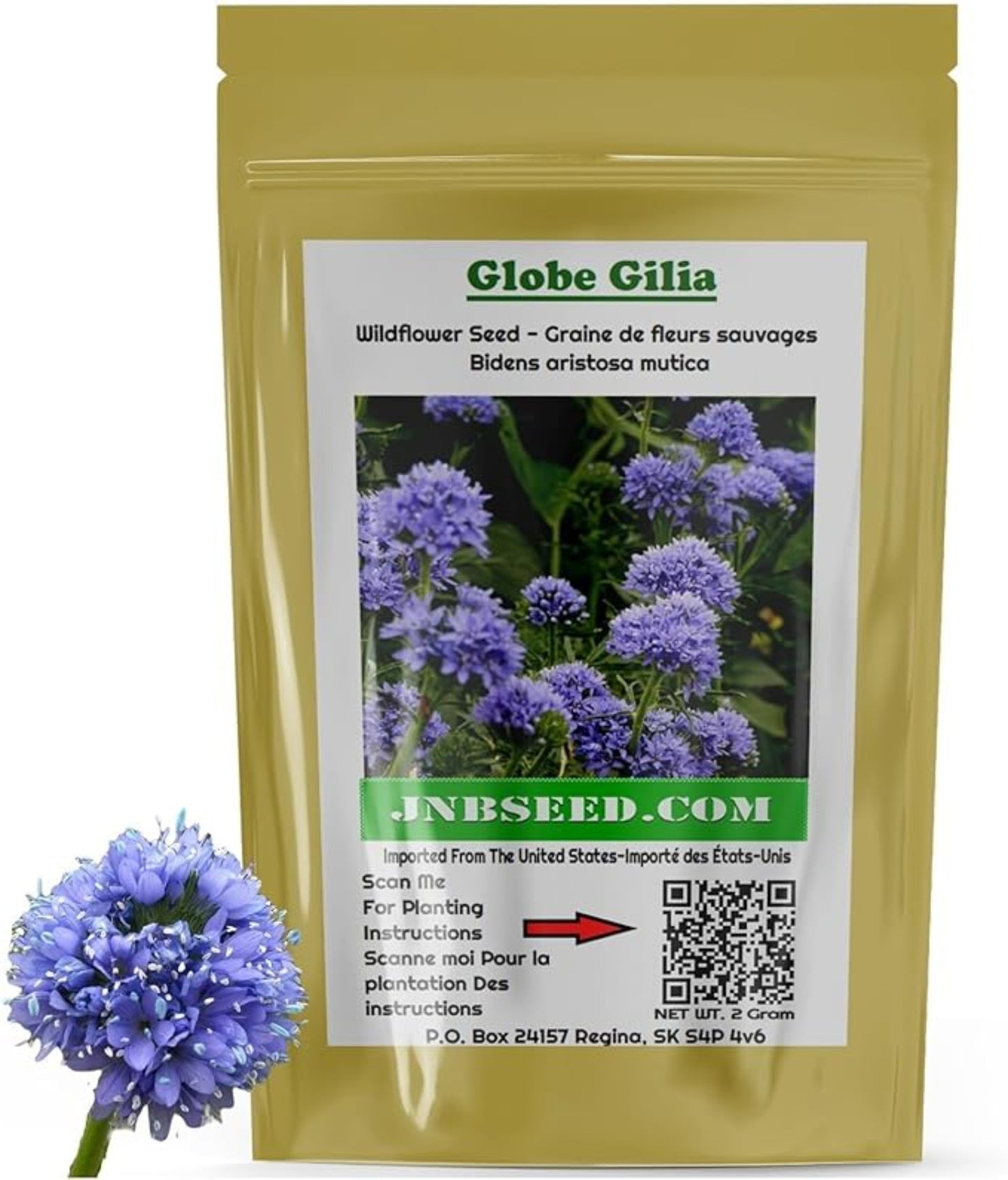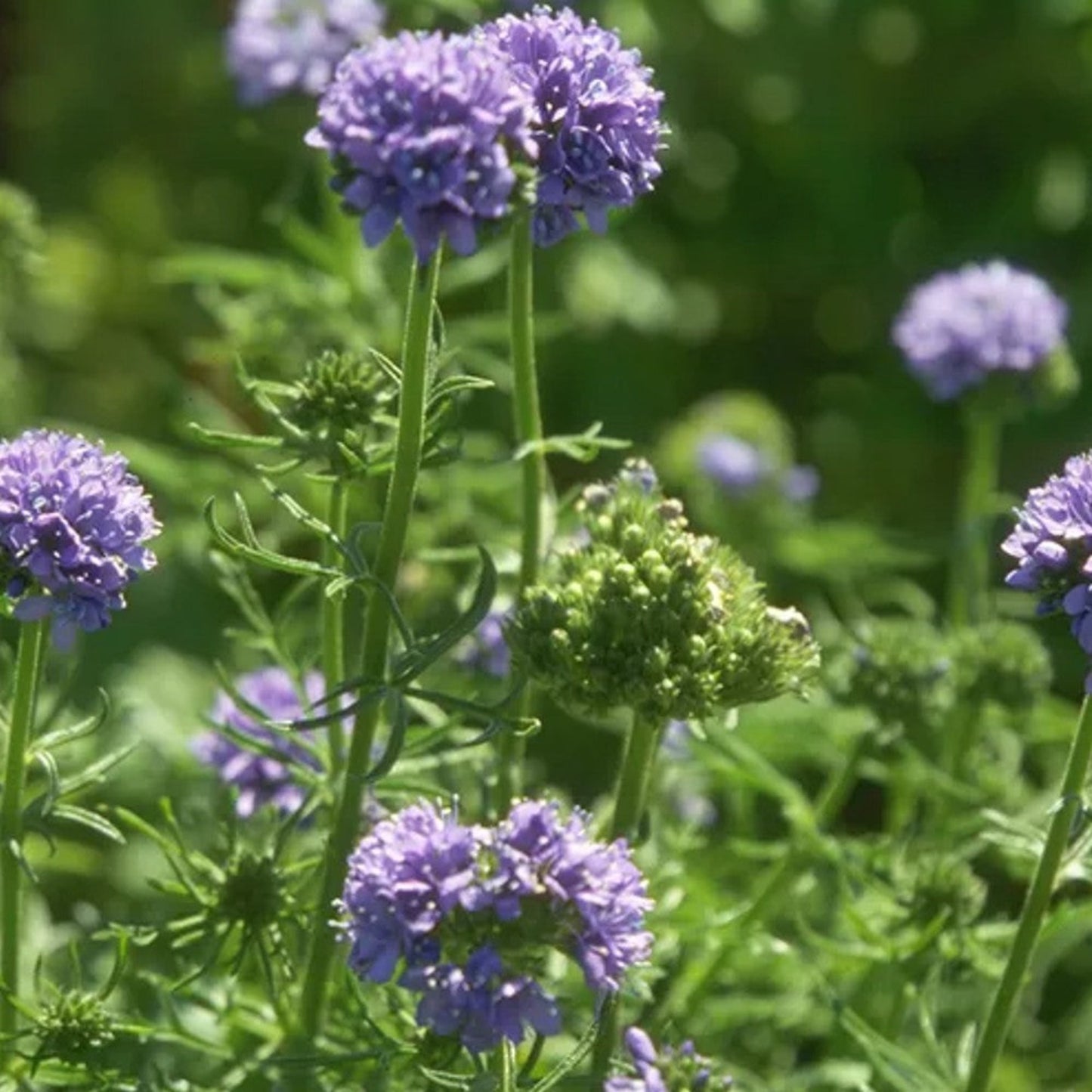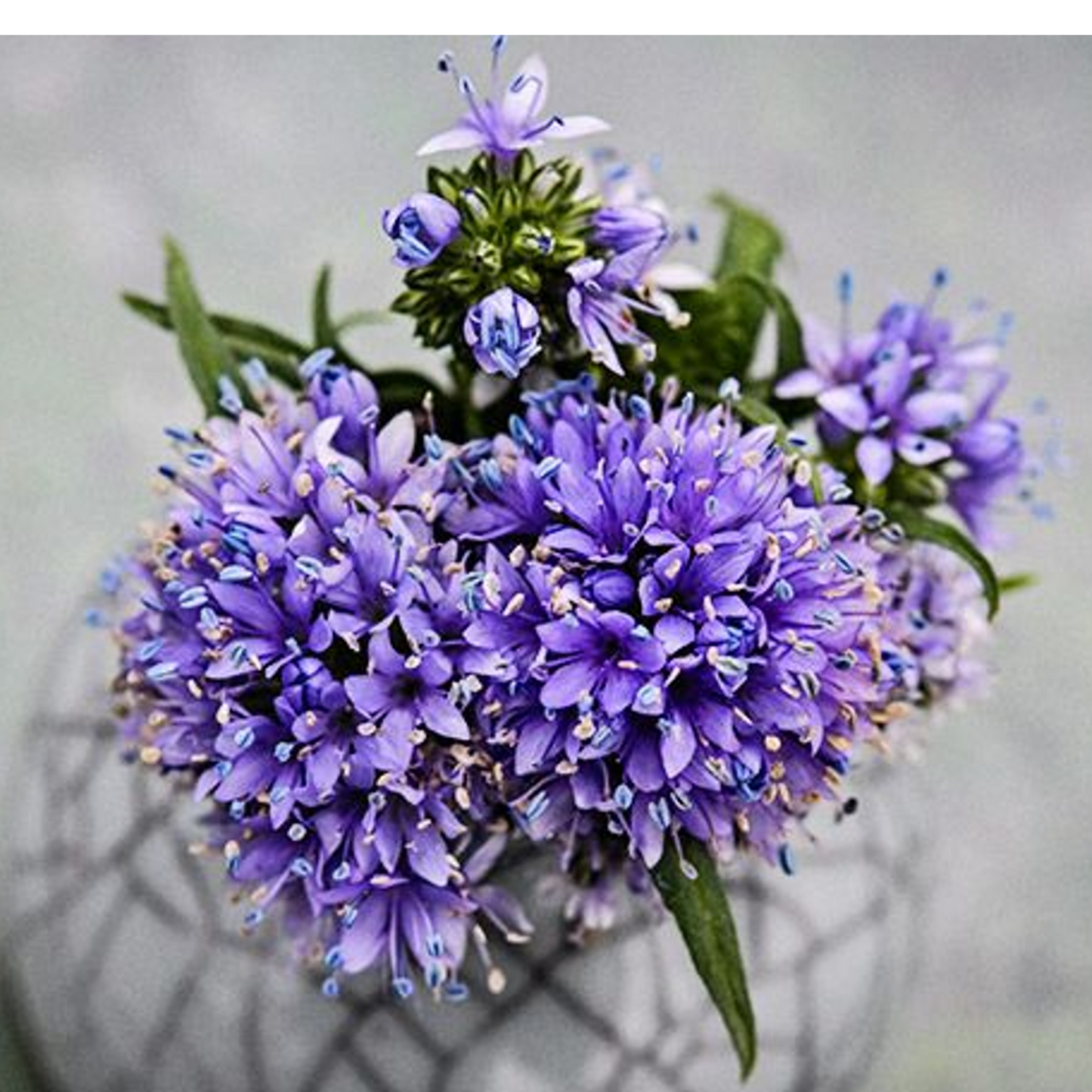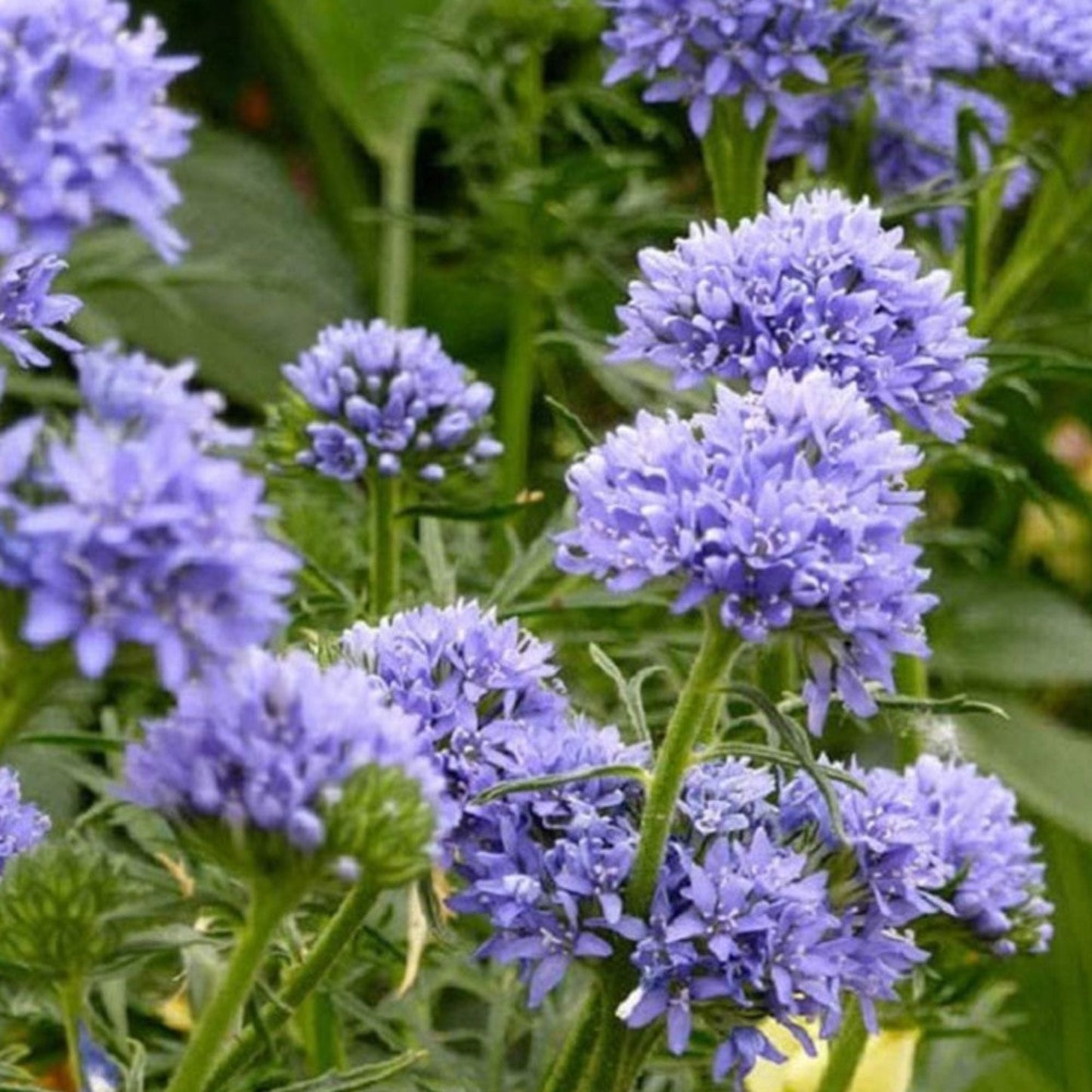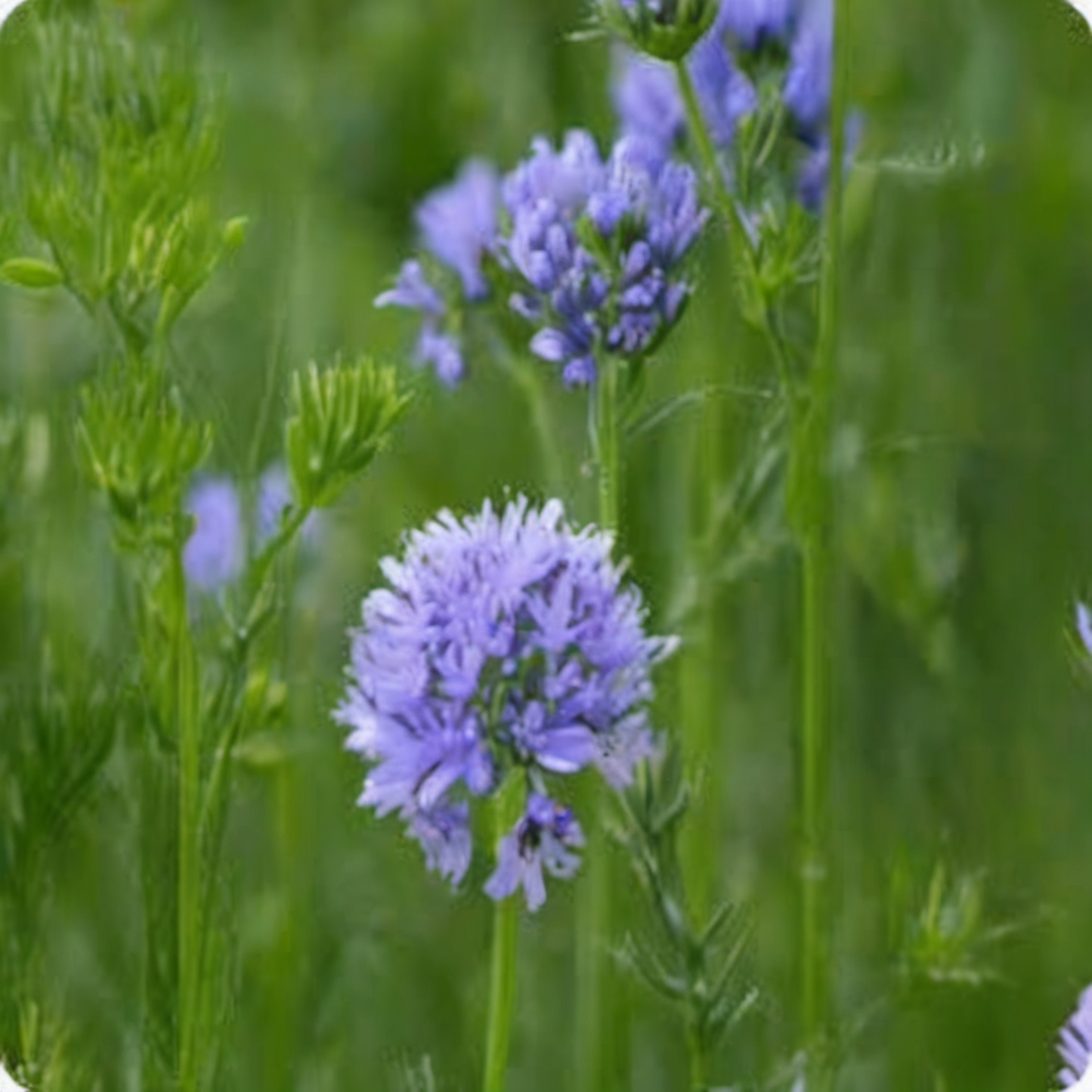JNB Seed
Globe Gilia Flower Seeds
Globe Gilia Flower Seeds
Couldn't load pickup availability
Globe Gilia, also known as Blue Thimble Flower or Blue-head Gilia due to its spherical cluster of fifty to one hundred small blue flowers, each adorned with a bell-shaped, open throat and delicate anthers extending slightly beyond. This adaptable flower thrives in various light conditions, from full sun to nearly full shade, and can flourish in different soil types.
Optimal growth is achieved in rich, moist, well-drained soil, ensuring consistent dampness until establishment, after which it exhibits drought tolerance. Cultivate this annual to attract bees and butterflies, or simply relish its striking blue blooms. Standing at a height of 30-60 cm (12-24"), these charming globe-like flowers boast a captivating violet-blue color. Originally native to the West Coast, they are widely cultivated as annuals in gardens across the United States. Additionally, their sweet fragrance adds to their allure, attracting butterflies to their scented blossoms.
The Gilia genus predominantly comprises desert-adapted plants found from the western United States to South America. The first documented Gilia species was encountered by Spanish botanists Hipolito Ruiz and Jose Antonio Pavon during their expedition to South America. They included this species, along with others, in a 1794 publication detailing their research from Peru and Chile. The name Gilia was bestowed upon this floral family in tribute to Filippo Luigi Gilii (1756–1821), an esteemed Italian naturalist renowned for his investigations into South American native plant life conducted at the Vatican Observatory.
Share
How To Grow
How To Grow
Sowing: Direct sow in late fall, planting just below the surface. For spring planting, mix the Gilia Capitata seed with moist sand and store it in the refrigerator for 30 days; To start indoors, sow Globe Gilia Seeds in a flat or individual peat pots 6-8 weeks before the last frost; keep the soil lightly moist and at a temperature of 21 degrees Celsius until germination, which usually occurs within two weeks. When the weather has warmed and the seedlings are well established, transplant outdoors.
Growing: Keep the soil moist as the seedlings develop, which will happen rather slowly at first. Mature plants tolerate drought well, preferring hot and dry conditions; do not overwater, since this can cause disease. This plant adapts well to areas with rocky or sandy soil. It will self-sow, and is extremely attractive to butterflies and bees.
Harvesting
Harvesting
To preserve the freshness of flowers, trim the stems of freshly opened blooms to long lengths and promptly submerge them in water. Remove any leaves that would be submerged below the water level to prevent decay.
Seed Saving
Seed Saving
Once the globe-shaped flowers have finished blooming, they will dry out and turn a light brown color. Each small flower will transform into a seed capsule that eventually opens to release several brown seeds. To harvest the seeds, either cut the ripened flower heads or gently shake the entire plant over a container to collect the seeds. Store the cleaned Globe Gilia Seeds in a cool, dry location for future use.
Extra Facts
Extra Facts
Latin Name: Gilia capitata
Species Origin: US Native Wildflower
Type: Native Wildflowers
Life Cycle: Annual
USDA Zones: 1, 2, 3, 4, 5, 6, 7, 8, 9, 10, 11, 12
Sunlight: Full Sun, Part Sun
Height: 46 centimeters
Color: Blue
Bloom Season: Blooms Late Spring, Blooms Early Summer
